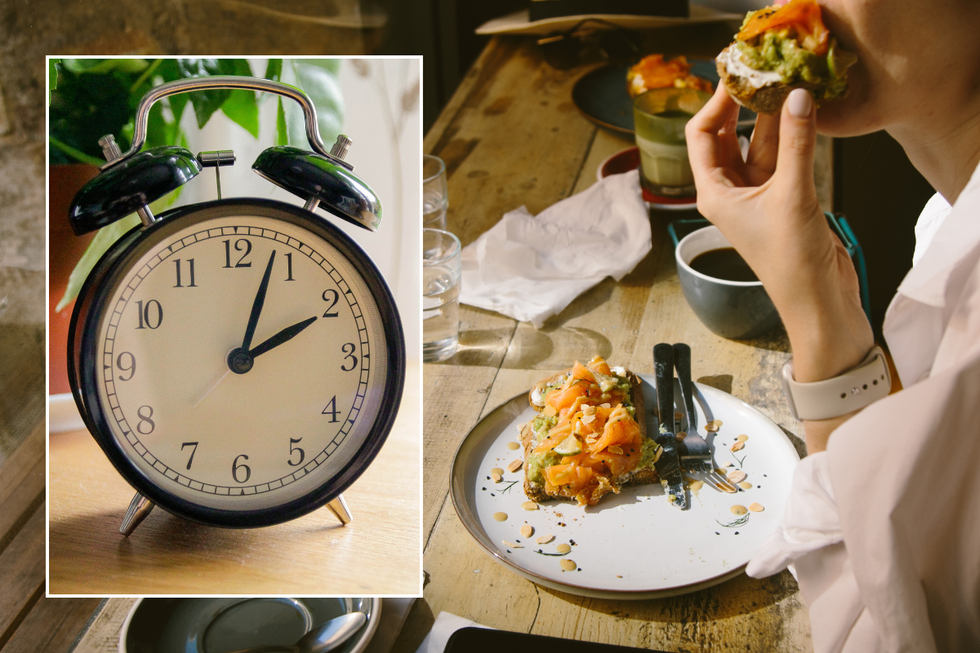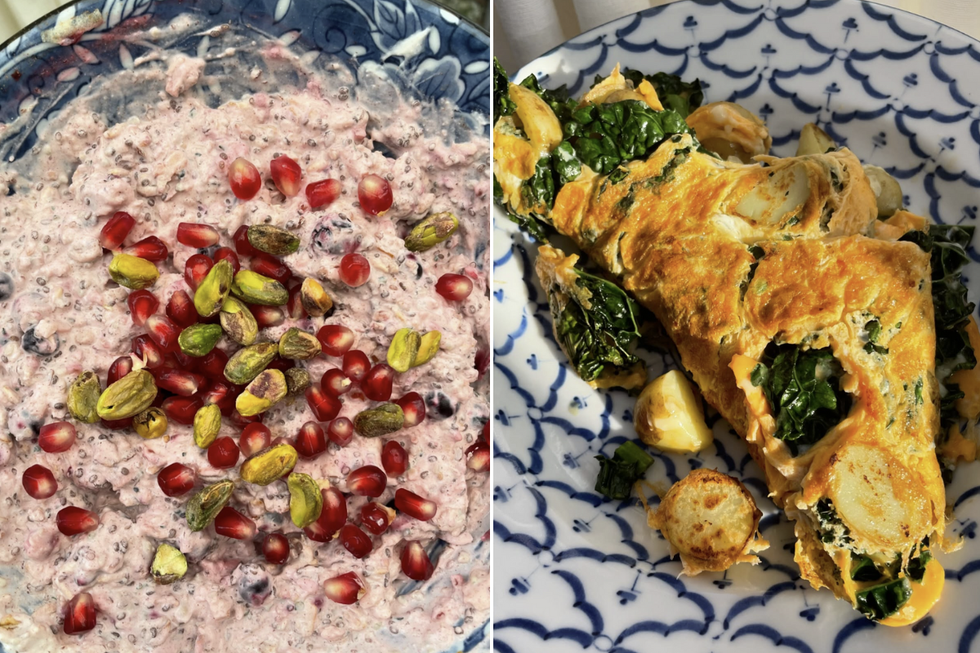Eating during a specific window could make the body ‘less resistant to insulin’
Naturally, diet plays a central role in health and controlling weight, leading those keen to shed pounds to take on tailored diets and drink plenty of water each day.
However, fewer people think about the significance of their meal times and their consequent wider health benefits.
One lifestyle medic has shared her own dietary timetable to provide some guidance for those who might be interested in taking on the simple change.
Self acclaimed “foodie first, doctor second”, Dr Camilla Stokholm, who goes by @whatyourdoctoreats on Instagram, divulged to her followers about her eating window.

Few consider the importance of their meal times in relation to their health
GETTY
“As you might know I ‘open my eating window’ at 12pm and ‘close it’ at 8pm most days,” she shared.
“This means my insulin has a 16 hour opportunity to not be spiked by my eating/drinking making me more metabolically flexible and less resistant to insulin.”
Boasting the abundance of health benefits, she explained: “These are both great things because insulin resistance increases your risk of chronic diseases like strokes, heart disease, type 2 diabetes and dementia.”
Additionally, the eight-hour-long window offers an individual’s microbiome 16 hours of rest, assisting optimal function and supporting the bowel lining. As a result, it reduces what is dubbed “leaky gut syndrome”.
LATEST WEIGHT LOSS TIPS
Such a condition can “confuse your immune system and drive all sorts of inflammatory and autoimmune conditions”, the doctor warned.
Dr Stokholm cited studies in mice that revealed how changing the window of time in which they eat can “transform their metabolic health and even alter some of their longevity pathways”.
“The point is that most people think time-restricted-eating is something you should do to lose weight, completely unaware of its other health benefits,” she praised, lauding the time frame.
However, she added that the change would only work “if you know how to stimulate your fullness mechanisms with genuinely filling meals”.

Dr Camilla Stokholm shared a few of her breakfasts, packed full of nutrients
Instagram/@whatyourdoctoreats
Without a meal rich in fibre, protein and fat, it might be more challenging to keep yourself full for a longer period of time.
Examples of such filling meals can include a bircher muesli, topped with organic oats, nuts, full fat Greek yoghurt and a sprinkling of pomegranate seeds, or a three-egg omelette with Cavolo nero, potatoes and cheese – as the doctor illustrated on her profile.
“You don’t need to do 8 hours yourself,” she said, warning that such a tendency is not suited for those with type 1 diabetes or eating disorders, or who are pregnant or are breastfeeding. Additionally, the eating habit is not appropriate for children.
“Ten [hours] also has similar health benefits. Even 12 hours can make a difference,” she added.
Before making any substantial lifestyle change, it is best to consult your GP or equivalent medical professional to ensure such a change is in your best interests.


Comments are closed.